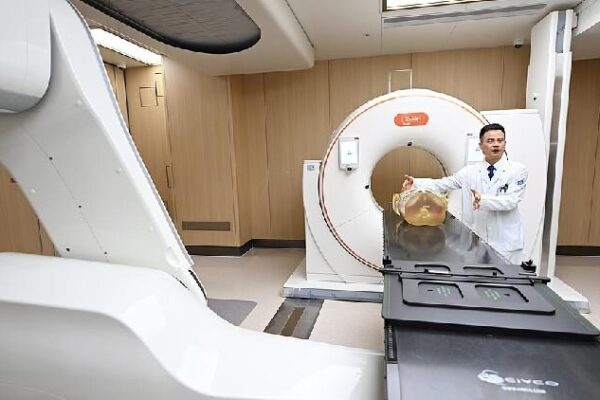Chinese researchers have made a groundbreaking discovery that could change the lives of millions suffering from Parkinson’s disease. A team at Huashan Hospital, affiliated with Fudan University in Shanghai, has identified a new therapeutic target called FAM171A2, opening doors to potential treatments that can slow the progression of this debilitating condition.
Led by Dr. Yu Jintai, the deputy head of the hospital’s neurology department, the team spent five years uncovering the role of FAM171A2 in Parkinson’s disease. Their findings, published in the prestigious journal Science on Friday, mark the first time this target has been identified globally.
“This discovery could pave the way for new treatments that go beyond managing symptoms and actually address the underlying progression of the disease,” said Dr. Yu.
Parkinson’s disease is the second most common neurodegenerative disorder after Alzheimer’s, affecting movement and cognitive function. Traditional treatments have focused on alleviating symptoms like tremors and stiffness but have not been able to halt the disease’s advancement.
The team’s research focused on pathological alpha-synuclein, a protein that accumulates and spreads in the brains of those with Parkinson’s, leading to neuron damage and death. By identifying FAM171A2 as the receptor that facilitates this harmful spread, the researchers have pinpointed a promising target for therapeutic intervention.
Utilizing artificial intelligence, they screened over 7,000 compounds and discovered that Bemcentinib, a molecule currently under investigation for other conditions, can inhibit the interaction between FAM171A2 and pathological alpha-synuclein. This means it has the potential to prevent the spread of the damaging proteins in the brain.
“Our experiments show that Bemcentinib can protect dopaminergic neurons, which are crucial for controlling movement,” explained Dr. Yu. “This could be a significant step forward in developing treatments that slow down or even stop the progression of Parkinson’s disease.”
The team has applied for an international patent for their treatment approach and plans to move forward with preclinical studies. Their goal is to develop effective therapies that can improve the quality of life for patients worldwide.
With estimates suggesting that the number of people with Parkinson’s disease could reach 13 million by 2040—and nearly half of them in China—this research brings much-needed hope to many families.
“We are committed to continuing our work and translating these findings into real-world treatments,” said Dr. Yu. “It’s an exciting time for medical research, and we believe this is just the beginning.”
Reference(s):
Chinese researchers find new target to treat Parkinson's disease
cgtn.com








